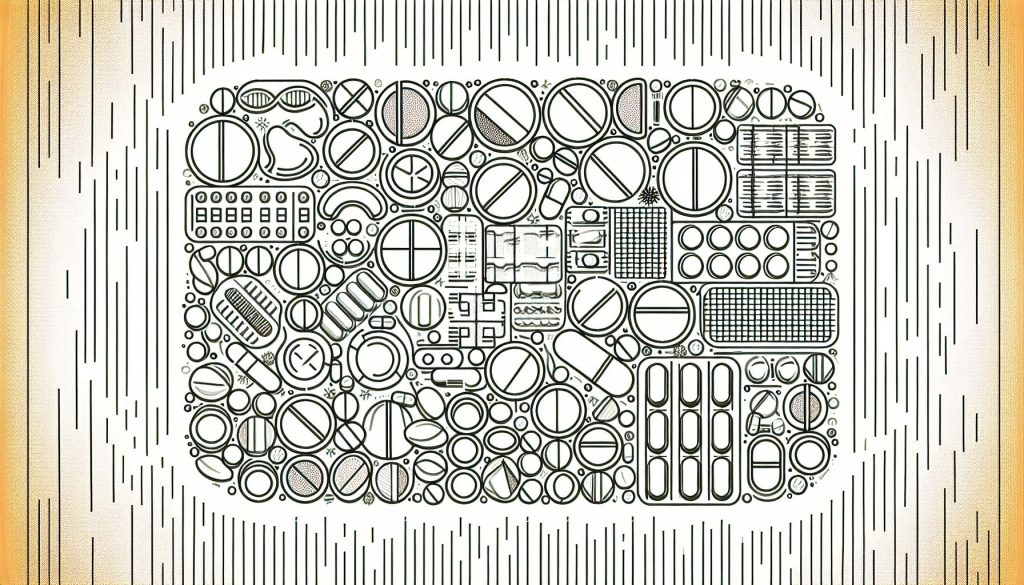
Crohn’s disease relief is now a significant focus in healthcare, with advancements in therapies offering new hope for managing the condition and improving overall gut health. Living with Crohn’s disease can be challenging, impacting daily life and requiring ongoing management of symptoms. This article explores the promising new therapies that are revolutionizing Crohn’s disease treatment, addressing the needs of those affected by this chronic inflammatory condition. We’ll delve into targeted therapies, discuss their effectiveness, and highlight the importance of personalized treatment plans. This article will be structured to provide a comprehensive understanding of the current landscape of Crohn’s disease relief, covering everything from medication to minimally invasive procedures.
Understanding Crohn’s Disease and Its Impact
Crohn’s disease is a chronic inflammatory bowel disease that affects the lining of the digestive tract. This can lead to a range of debilitating symptoms, including abdominal pain, persistent diarrhea, fatigue, and weight loss. While there’s no cure for Crohn’s disease, effective management strategies can significantly improve quality of life. Early diagnosis and intervention are crucial in minimizing the long-term complications associated with the disease. Recent research has focused on identifying the root causes of Crohn’s and developing personalized treatments to address individual needs.
Targeted Therapies: Revolutionizing Crohn’s Disease Relief
Biologics: A New Frontier
Biologic therapies, a groundbreaking development in Crohn’s disease treatment, target specific inflammatory pathways within the body. These medications work by modulating the immune response, reducing inflammation in the digestive tract, and thus improving symptoms. Recent clinical trials indicate significant improvements in symptom control and remission rates for many patients, especially those not responding well to other treatment options. For instance, studies show that a subset of patients with severe cases achieved remission with biologics after failing other therapies, demonstrating the potential for targeted relief.
Minimally Invasive Procedures: Advancements in Surgical Interventions
Endoscopic Techniques
Minimally invasive procedures are transforming surgical approaches for Crohn’s disease, offering patients less invasive ways to address inflammation and complications. Endoscopic techniques, such as mucosal resection and strictureplasty, provide precise targeting of affected areas, enabling surgeons to improve outcomes with minimal disruption to the digestive tract. Results often include less pain and faster recovery times compared to traditional open procedures. These are crucial for improving quality of life and long-term outcomes for Crohn’s patients.
Personalized Treatment Plans: Tailoring Approaches to Individual Needs
Comprehensive Care
The shift towards personalized treatment plans recognizes the unique characteristics of each patient’s Crohn’s disease. A personalized approach considers factors like disease location, severity, and patient response to various therapies. This tailored approach leads to better symptom control and helps improve long-term health outcomes. Comprehensive care, including regular check-ups with gastroenterologists, dietary counseling, and mental health support, is crucial for long-term success.
The Role of Diet and Lifestyle in Crohn’s Disease Management
Dietary Considerations
While medical therapies are crucial for Crohn’s disease management, a healthy diet and lifestyle play a vital role. Following a personalized dietary approach, considering individual triggers and tolerances, helps to manage symptoms. A balanced diet, rich in nutrients, can support overall health and well-being, while avoiding known food triggers can significantly reduce digestive discomfort.
Long-term Impact and Management
Maintaining a consistent treatment plan is vital in managing the long-term effects of Crohn’s disease. Regular follow-up visits with a gastroenterologist, adherence to medication regimens, and a healthy lifestyle contribute significantly to disease management and can prevent the potential complications associated with Crohn’s disease.
Frequently Asked Questions
What are the most common symptoms of Crohn’s disease?
Common symptoms of Crohn’s disease include persistent abdominal pain, diarrhea, fatigue, fever, and weight loss. The specific symptoms vary depending on the location and severity of the inflammation. It is important to seek medical attention if you experience these symptoms, especially if they are severe or persistent, to obtain a diagnosis and to develop an appropriate treatment strategy.
How are new therapies helping with Crohn’s disease relief?
Recent advancements have led to new therapies like biologics and minimally invasive procedures that target specific inflammatory pathways within the body or allow for precise targeting of affected areas in the digestive tract. These therapies aim to achieve better symptom control, remission, and improve long-term health outcomes. Understanding the diverse array of available treatment options is a key aspect in managing the condition.
In conclusion, Crohn’s disease relief is achievable with innovative therapies tailored to individual needs. These advancements offer hope for improved gut health and overall well-being for those living with Crohn’s. If you’re experiencing Crohn’s symptoms, consult a gastroenterologist to explore the best treatment options, including novel therapies. Learning about these advancements can empower you to make informed decisions about your health.